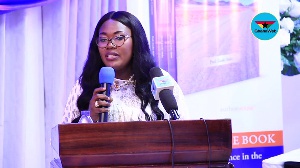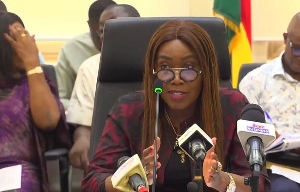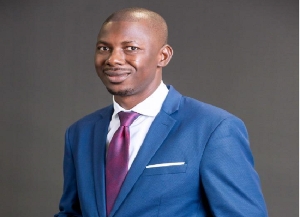General News of Wednesday, 1 August 2018
Source: thebftonline.com
Two-track SHS intake requires clear road map - Prof. Goski Alabi
The Dean of the Centre for International Education and Collaboration at the University of Professional Studies, Accra (UPSA), Professor Goski Alabi, has asked government to come clear and issue a road map on how it intends to implement the proposed double-track intake system for Senior High Schools (SHS).
President Nana Akufo-Addo, over the weekend, reiterated his government’s commitment to implementing the double-track system which will change the traditional three-term timetable of secondary schools to run on a semester basis, as a way of lessening pressure the Free SHS programme has brought on schools.
In an interview with the B&FT, Prof. Alabi said the move is a change management process requiring a clear document that should spell out how the programme will be implemented and its implications for the country’s education system.
“If you are coming out with a change in policy that has a number of implications, particularly for quality of output, there must be a concept note — a document which specifies the entire concept and how that concept will resolve a particular issue which has been identified with the current system, what the advantages of that new system will be over the old one, and what the implications of the new introduction will be for the existing system and our preparedness to address the implications and consequences that the change is likely to bring.”
“It is not enough,” she said, “to just say that we are bringing such a change and this is what we believe the change will do. It has to be backed by a clear concept note that allowss people to really appreciate what the new intervention is intended to do and how it is going to be implemented.”
She further stated that the new system, which government has said will take effect in September, should have gone through broad stakeholder consultation for all concerns about it to be addressed before implementation.
“There ought to have been adequate stakeholder engagement that would have culminated in a consensus about the fact this system has to replace the old one. Then, for those who were not part of the stakeholder engagement, they need a clear directive as to what the new intervention will do and how it is supposed to be done.
“Anything short of that is just a hearsay, and we don’t manage change like that. We are talking about a serious thing like secondary education in Ghana; so, there must be a roadmap of how the new intervention is going to be implemented,” she said.
Prof. Goski Alabi is not the only person calling for more consultation on the matter. The Integrated Social Development Centre (ISODEC) has also called the programme’s swift implementation a rushed one, which might be reversed by any successive government.
“First, government makes very little effort to build consensus around its policies. This is evident from the inadequate public consultations it carries out ahead of its policy implementation, and which in the view of ISODEC does not help with ensuring durability and consistency in policy implementation.
“Indeed, such a non-consultative approach to governance always comes with the risk of policy reversals by succeeding governments.
“We often get the impression that some of these policies are not properly thought-through. Several of them have no proper and publicly available policy-papers backing them,” ISODEC said in a statement.











